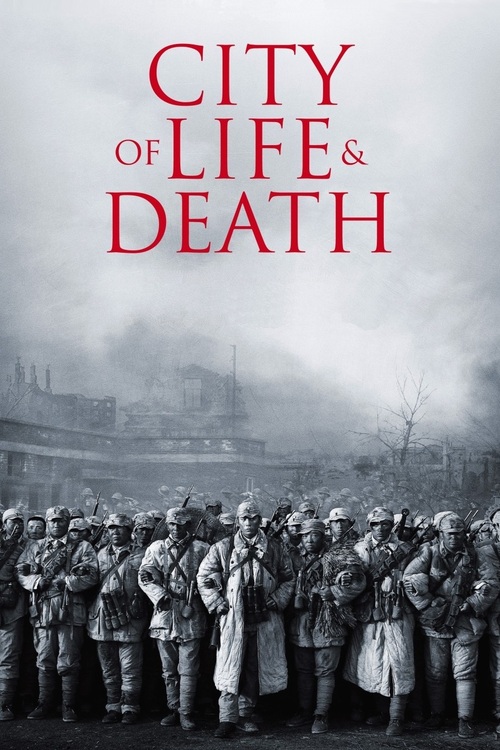

Runtime
Category
Language
Director
Actors
City of Life and Death
Watch it Later
Watch it On
What's it About
In 1937, the Japanese Imperial Army invades the Chinese capital city of Nanking, which lies in ruins after repeated air assaults. A band of soldiers led by Lu Xianxiong (Liu) attempts resistance, but is quickly overwhelmed and imprisoned, along with many thousands of others. As the infamous massacre of Nanking takes place, we follow several characters through the atrocities: Miss Jiang (Gao), a local school teacher, John Rabe (Paisley) a German who sets up a secure zone for the women and children, and Kadokawa (Nakaizumi), a Japanese foot soldier whose haunted face comes to reflect the horrors of war.
Why we love it
Lu's stunning and often harrowing historical epic unfolds with documentary-like realism. Gradually, the black and white, handheld immediacy of the camerawork draws us in to certain individuals, and the enormity of war becomes painfully intimate and personal. Understandably, Chinese audiences struggled with this story told primarily through the eyes of a Japanese perpetrator, but Lu's measured approach — and Nakaizumi's heartbreaking turn — show us that war can damage more than just the oppressed. Performances are uniformly powerful, and scenes of rape and mass murder, though shown at a clinical remove, are nevertheless shattering to watch. Individual acts of bravery and self-sacrifice remind us that even in the most horrific circumstances, human nature can rise above its basest instincts. This modern day masterpiece deserves to stand alongside such classic war films as Pontecorvo's "The Battle of Algiers" and Coppola's "Apocalypse Now."
